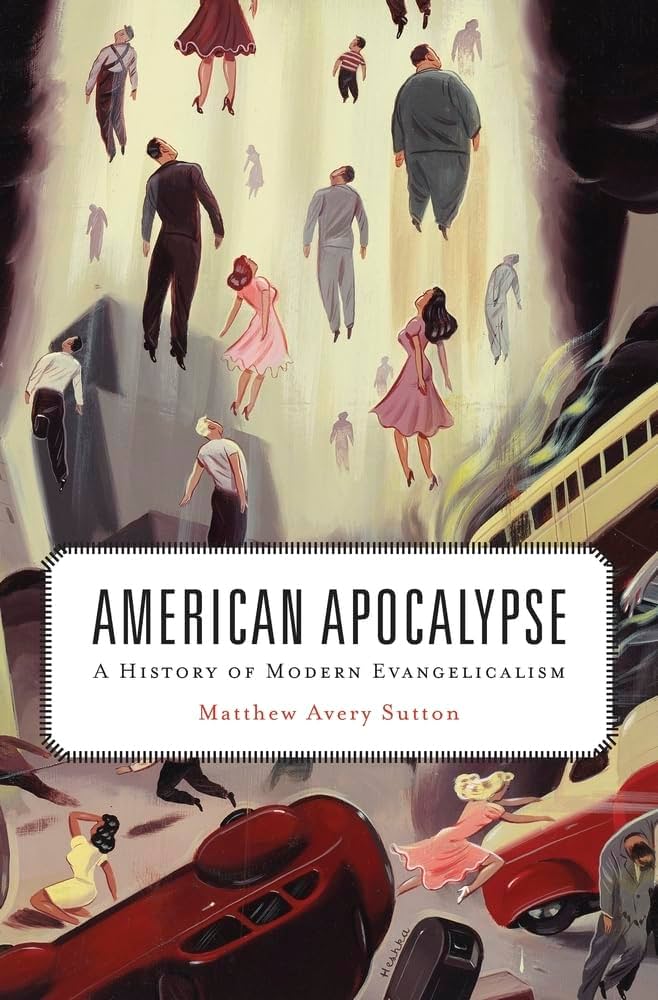A History of Modern Evangelicism

The imminent end of the world has a longstanding history of bringing out the worst in people. From Y2K to the COVID-19 toilet paper debacle, viewing the world as racing toward catastrophe changes not only people’s behavior but also their politics, media consumption, and institution-building. In evangelicalism, premillennialism builds on this sense of urgency through its focus on Christ’s imminent return and the end of the world. Sutton argues that modern evangelicalism is fundamentally rooted in this apocalyptic and prophetic mindset, which has shaped evangelical identity, purpose, and activism.
Sutton begins in the late 1800s with William Blackstone, whose teachings about the end of the world and Christ’s immediate return became central to evangelical identity. Throughout subsequent eras—World War II nationalism, the rise of fundamentalism, Cold War anti-communism, and the cultural upheaval of the 1960s civil rights movement and Vietnam War—apocalyptic themes consistently reappear. According to Sutton, each new crisis strengthens “end-times” thinking among both evangelicals and the broader American public.
Overall, Sutton offers compelling arguments for the pervasive influence of apocalyptic language and attitudes in shaping not only evangelicalism but American culture more broadly.
Matthew Avery Sutton is a distinguished professor and chair of the Department of History at Washington State University. In addition to his current work, his other notable publications include Chosen Land: How Christianity Made America and Americans Remade Christianity and Double Crossed: The Missionaries Who Spied for the United States During the Second World War.
Reviews and Endorsements of this publication include the following:
“The history Sutton assembles is rich, and the connections are startling.”
―New Yorker
“American Apocalypse relentlessly and impressively shows how evangelicals have interpreted almost every domestic or international crisis in relation to Christ’s return and his judgment upon the wicked…Sutton sees one of the most troubling aspects of evangelical influence in the spread of the apocalyptic outlook among Republican politicians with the rise of the Religious Right…American Apocalypse clearly shows just how popular evangelical apocalypticism has been and, during the Cold War, how the combination of odd belief and political power could produce a sleepless night or two.”
―D. G. Hart, Wall Street Journal
“American Apocalypse is the best history of American evangelicalism I’ve read in some time…If you want to understand why compromise has become a dirty word in the GOP today and how cultural politics is splitting the nation apart, American Apocalypse is an excellent place to start.”
―Stephen Prothero, Bookforum
For more information on this publication click here:
For more of “On the Lived Theology Reading List,” click here. To engage in the conversation on Facebook and Twitter, @LivedTheology, please use #LivedTheologyReads. To sign up for the Lived Theology newsletter, click here.
